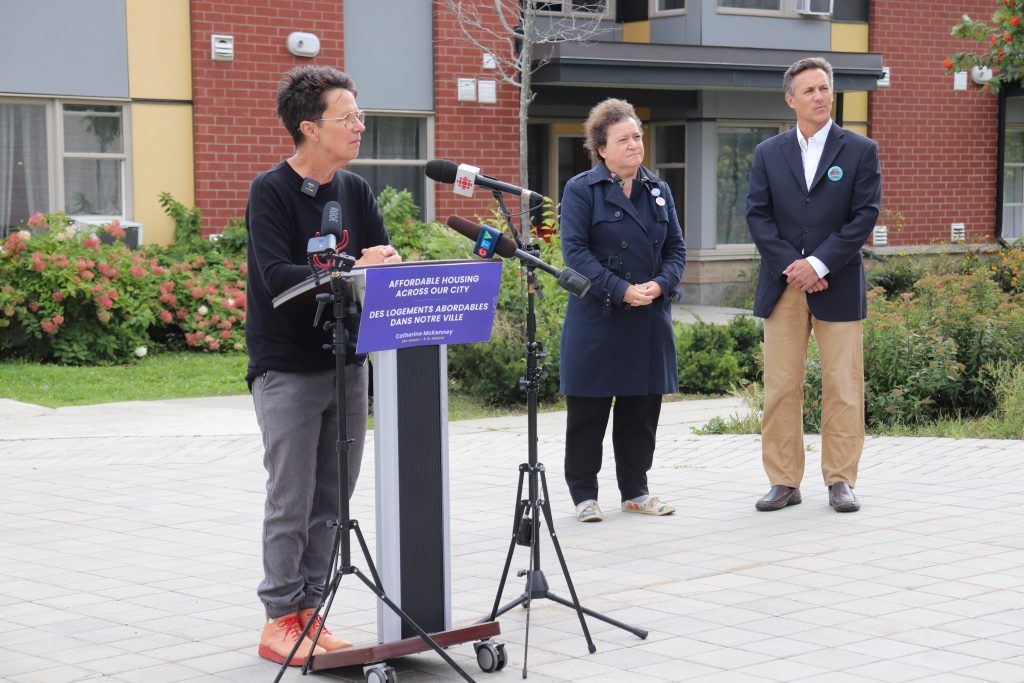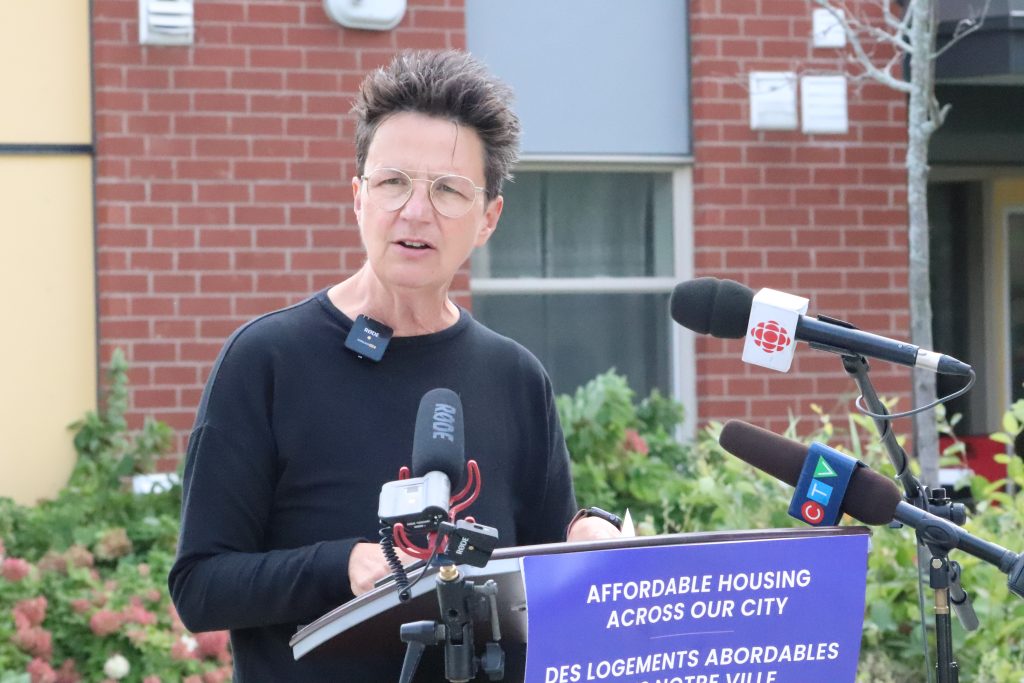McKenney Vowes To End Homelessness During Barrhaven Campaign Stop
By Charlie Senack, Barrhaven Independent
Mayoral candidate Catherine McKenney made a campaign stop in Barrhaven to release their affordable housing platform for the city.
Outside ‘The Haven’ Multi Faith Affordable Housing Complex on Verona Ave, near Longfields, McKenney pledged to end homelessness in Ottawa within four years.
The ambitious plan would cost the city $15 million in its first year, in addition to the funding already allotted.
“It’s getting harder to afford to live in our city,” McKenney told reporters at the Barrhaven press conference. “Everyone deserves a safe and affordable place to call home — families, students, low income folks, everyone. But that’s not the reality in Ottawa right now.”
Under McKenney’s plan, 500 individuals and 300 families who are currently homeless would receive a house to live in. It would then remove the need for motels being used for accommodation, a plan which can cost upwards of $3,000 a month. It’s expected this move in itself would save taxpayers $5 million a year.
This would ensure anyone who has been without a home for six months would receive accommodation, and would remove the city’s chronically homeless population out of shelters.
Around 1,000 affordable housing units would be built in Ottawa over the next four years, a 30 per cent increase compared to current levels. The complexes would be built near public transit and would be for mixed-income, mixed-use, and multi-generational individuals.
McKenney also pledges to lobby the federal government for its fair share of the housing accelerator fund, which would total $108 million.
The Mayoral candidate is in support of getting rid of R1 zoning, rules that are in place which disallow anything but a single-family home from being built on a property. In addition to that, McKenney opposes expanding the urban boundary.
McKenney said building can still be done in the current boundaries, noting any further expansion is bad for the environment and costs taxpayers more money.

Sutcliffe Criticizes McKenney Plan
McKenney’s main rival, Mark Sutcliffe, sent statements to the media before and after their media availability, criticizing the current Somerset ward councillors affordable housing plan.
Sutcliffe said McKenney’s record at council has demonstrated opposition to building new homes in Ottawa, including in the downtown core.
“At a time when we need real leadership and action on all types of housing, from new homes, to affordable and community housing units, this announcement takes us in the wrong direction,” Sutcliffe wrote. “It does not address how the City of Ottawa can act today to increase all forms of housing supply, and is dependent on other levels of government to lead. Asking the federal government to simply get our fair share of funding is not enough.”
McKenney’s announcement offered no real solutions, criticized Sutcliffe, who added “it ignores the much-needed cultural change that must take place at Ottawa City Hall.”
Two days later Sutcliffe released his own housing plan, which aimed to build 100,000 new homes over ten years, including 10,000 community housing units.
Under current operations, McKenney said it’s expensive to have individuals or families live in shelters or motels, just to finally be rehomed a few years later. They called it a “moral imperative” to end homelessness in Ottawa.
While this will be a costly task, McKenney has pledged to keep property tax increases at only three per cent per year.
McKenney’s plan also includes providing short term rental allowances to people who are “one paycheque away” from losing their home, and would set up a hotline for individuals who are struggling to pay their rent.
Every individual who enters the shelter system already receives some funding to go towards a private market rental. McKenney said that’s often not enough and families require even more assistance to keep up with the rising prices.
A total of $5 million would also be invested into the Ottawa Community Land Trust, which would help non-profit and co-op organizations retain existing affordable housing.






